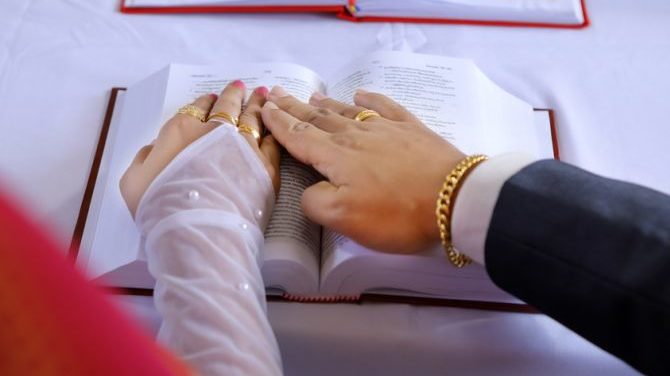Pakistan’s National Assembly unanimously approved the raising of the minimum legal age for marriage to 18 earlier this month, amending a 19th-century law allowing the marriage of Christian children.
The Christian Marriage Act of 2024 amended an 1872 British rule allowing marriage at 13 for girls and 16 for boys, raising the age to 18 for both genders. The law was approved amid incidents of child marriage, kidnapping, and forced conversion in Pakistan, where about 19 million Pakistani women are victims of child marriage, according to 2018 data.
The act was first introduced to the Senate last year by Sen. Kamran Michael as an update to the 1872 law and was approved on July 9 of this year after Naveed Aamir Jeeva, a Christian from Punjab province, introduced it to Pakistan’s sovereign legislative body, the National Assembly.
The act applies to Christians in the Islamabad Capital Territory, a territory in the northwestern area of the Punjab region surrounding Islamabad, the capital of Pakistan.
Local Catholic leaders including the president of the Catholic Bishops’ Conference of Pakistan, Bishop Samson Shukardin, and the National Commission for Justice and Peace have since hailed the act for protecting girls from forced conversions and child marriages, which is very common in Pakistan.
“We extend our sincere appreciation to the entire Parliament for passing this bill unanimously,” read a statement from the organizations, according to Vatican News.
“This legislation will play a crucial role in protecting our young and minor girls from forced conversions and child marriages,” it continued. “We hope the government will take further steps to criminalize forced religious conversions.”
According to a study from United Nations International Children’s Emergency Fund (UNICEF), 1 in 6 young women in Pakistan were married in childhood. Pakistan is home to nearly 19 million women married before the age of 18, 4.6 million of whom were married before 15.
This act is not the first legislation against child marriage in Pakistan in response to rampant child marriages. A Pakistani law, the Sindh Child Marriage Restraint Act, was approved in 2013 in Sindh, the second-largest province in terms of population.
But courts do not always enforce these laws, and Sharia law (Islamic law) permits marriage of girls when they reach “maturity,” often considered to be after their first menstruation. Islam is the state religion of Pakistan, according to the nation’s constitution.
The new amendment may help prevent the practice of abducting young girls from the minority population of Christians and the forcing of them to convert to Islam and marry an older man. Fewer than 2% of Pakistanis are Christian and Hindu, respectively. Sunni Islam is the majority religion, at about 83% of the population, while Shia Islam is about 12% of the population.

